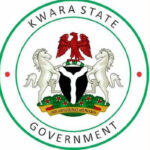The European Union and the United Nations have expressed concerns, in a joint press conference on Friday 24 January, about the recent upsurge in attacks against aid workers and civilians recorded in recent weeks in the north-eastern states of Borno, Adamawa and Yobe.
Amidst a deteriorating security situation, they reiterated their commitment to work better together and strengthen efforts to provide life-saving assistance to those affected by more than ten years of crisis in Borno, Adamawa and Yobe states, in north-east Nigeria, and to increase support to people rebuilding their lives and communities.
On his first official trip outside Europe, Janez Lenarčič, European Commissioner for Crisis Management, joined by the Humanitarian Coordinator in Nigeria, Mr Edward Kallon, met with the President of Nigeria, Muhammadu Buhari, the Minister of Humanitarian Affairs, Disaster Management and Social Development, Sadiya Umar Farouq, and Borno State Governor, Prof Babagana Zulum, as well as various partners from local CSOs, international NGOs and UN agencies implementing the humanitarian response in north-east Nigeria.
During this two-day visit, Commissioner Lenarčič and Mr Kallon, also met with people displaced and affected by the violence in the Borno State town of Gwoza and visited EU-funded relief projects.
Announcing that the European Union will allocate an additional €26.5 million in humanitarian aid, Commissioner Lenarčič declared: “I saw first-hand today the suffering that conflict has brought to people’s lives and how crucial humanitarian aid is to people’s survival.
“What matters most is that humanitarian organisations can reach all the people in need, without restrictions, including in areas under the influence of non-state armed groups.
“It is vital that all States and parties to armed conflicts respect their obligation to allow and facilitate the rapid and unimpeded passage of humanitarian relief. It is also key to implement in parallel a comprehensive strategy in the region, exploring political tracks while addressing the root causes of conflict.”
Recent weeks have been marked by an upsurge in violent attacks from non-state armed groups and an increasing trend of illegal checkpoints on major supply and commercial routes directly targeting civilians, authorities and aid workers, especially in Borno State.
Twelve aid workers were deliberately and brutally murdered by non-state armed groups in 2019, twice the number in 2018. Two aid workers, Grace Taku and Alice Loksha, are still being held hostage by non-state armed groups. The humanitarian community is calling for their immediate and safe release.
The humanitarian crisis in Nigeria remains one of the largest crises across the globe. In a complex and volatile security environment, the United Nations and NGO partners, in collaboration with local and national authorities in Nigeria, have delivered urgent support and basic services to over 5.6 million people in the crisis-affected states of Borno, Adamawa and Yobe, in Nigeria’s north-east.
In 2020, the humanitarian community estimates that 7.7 million people will need emergency assistance.
Over 1.8 million people, across the three crisis-affected states of Borno, Adamawa and Yobe are still living in camps or are hosted in other communities, that are themselves becoming extremely vulnerable. 1.2 million people in need remain cut off from humanitarian aid in hard-to-reach areas.

 Join Daily Trust WhatsApp Community For Quick Access To News and Happenings Around You.
Join Daily Trust WhatsApp Community For Quick Access To News and Happenings Around You.


